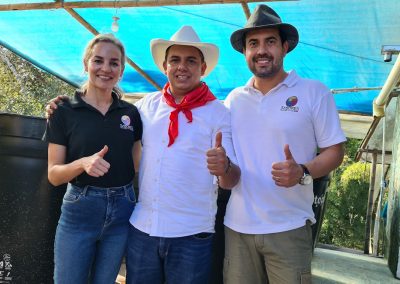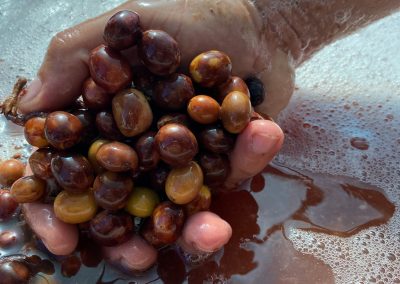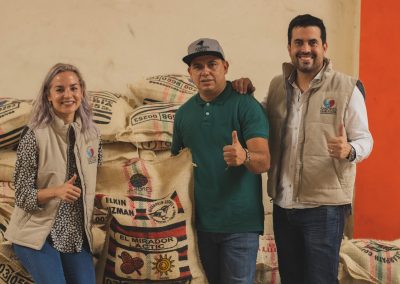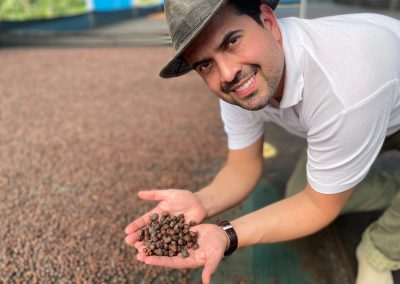Tabi Natural
Thermal Shock
Tabi Thermal Shock Natural – Data Sheet
– Coffee Name: Tabi Thermal Shock Natural
– Grade: Excelso
GEOGRAPHIC LOCATION
– Country: Colombia
– Region: Palestina, Huila
– Farm: El Mirador
– Altitude: 1.550 – 1.750 m.a.s.l
GROWING CHARACTERISTICS
– Varieties: Tabi
– Drying: Sun-dried under Canopies
– Processing: Honey
– Fermentation: Thermal Shock
ORGANOLEPTIC CHARACTERISTICS
– Notes: Mangosteen, Mango, Peach, Passion Fruit, Blackberry
– SCA Score: >88
Farm Info
This lot of Tabi Thermal Shock Natural is harvested and produced by El Mirador, located in the town of Palestina in Huila, Colombia, owned by Elkin Guzman. The farm includes a broad collection of varieties such as Catiope, Mokka, Gesha, Bourbon, Caturra, and Tabi, which is a variety developed and released in 2020 in Colombia by Cenicafe by crossing the varietals; Bourbon, Typica, and the Timor Hybrid.
In the world of differentiated coffees, Elkin and his team have been experimenting and evaluating variables that help improve the quality of the coffees they handle to offer an excellent drink for coffee consumers worldwide for more than 13 years.
The area of the farm is 31 hectares, with sandy-loam and clay-loam soils with good organic matter conditions that aid in the excellent nutrition of their coffee trees. El Mirador is managed under semi-shade systems to optimize temperature regulation and the effect of photosynthesis in coffee plantations.
Tabi Thermal Shock Natural Process
With the Thermal Shock process, the coffee selected for this process goes through sieves to be selected by hand, removing underripe or overripe cherries, being very selective with the highest quality fruit to start the process. The selected coffee is left in plastic tanks to favor the anaerobic environment for 60 hours. After this time it is moved to larger tanks to generate an oxidation/aerobic where water is added at 35˚C to 40˚C degrees seeking to be constant and homogeneous throughout the mass of coffee for 60 hours, at the end the water is removed and cold water is added to stop the fermentation for 8 hours. The final stage is drying for 18 to 24 days.




